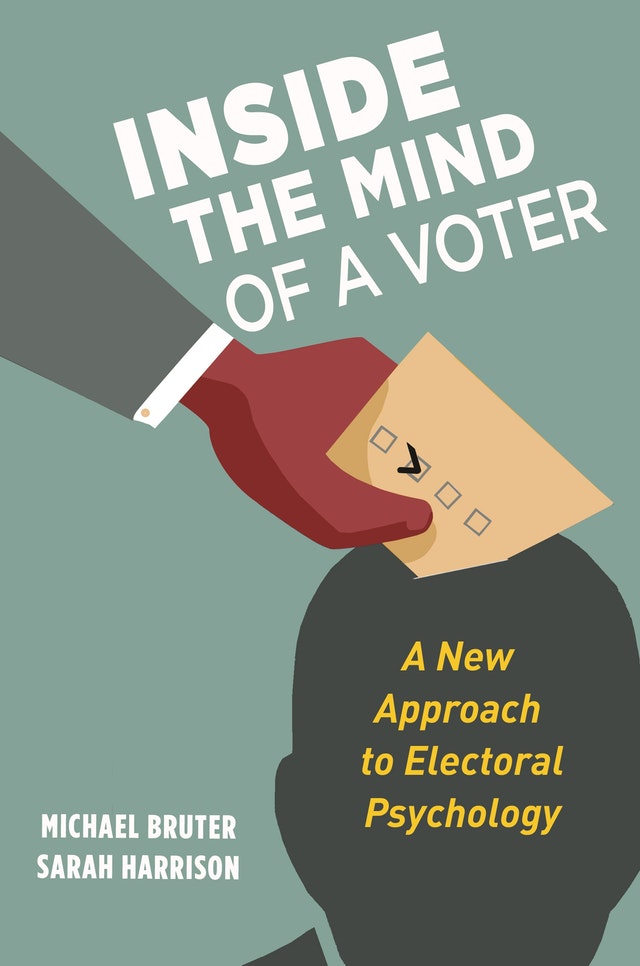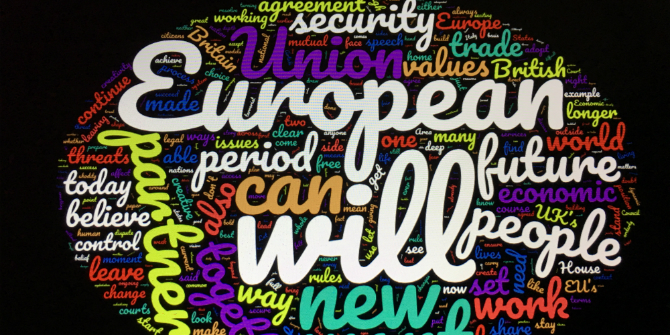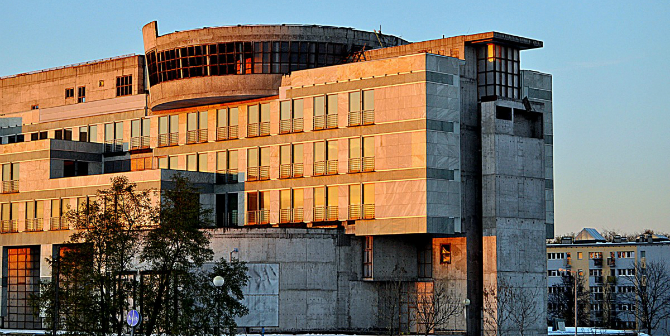“Inside the Mind of a Voter” an in-depth look into the psychology of voters around the world – how they shape elections; how elections transform citizens, and affect their lives. In the book, Michael Bruter and Sarah Harrison (LSE) explore three interrelated aspects of the heart and mind of voters: the psychological bases of their behaviour, how they experience elections and the emotions this entails, and how and when elections bring democratic resolution. In this blog, they explain what happened on the Election Night of the Brexit referendum, and how a new kind of electoral hostility has enabled the rise of populism.
Election Night: A chance for closure
For individual citizens and for the polity as a whole, Election Night may serve as the symbolic and emotional ending of the election moment, the “debriefing” episode which will highlight and crystallise their intellectual and emotional electoral experience in a way which is both symptomatic of the previous tensions and emotions captured and path-dependent on their own electoral attitudes and behaviour throughout the period. In turn, this may or may not enable an election to bring closure in the eyes of citizens.
The symbolic nature of Election Night as the cherry on the emotional cake of the election period in general and climatic Election Day, in particular, is made obvious by citizens’ narratives and description of their habits and feelings. The emotionality and crystallising potential of Election Night are illustrated by the idea of electoral tears which we further analyse later in this book. As an example, in the context of the Referendum on Britain’s membership of the European Union (the so-called “Brexit” referendum), we found that 28% of citizens reported that they cried or felt tearful at the time they discovered the result of the vote. That proportion increased to 39% among young voters aged 18 to 24. Those numbers are extremely high, much more so than in the context of any other election in which we asked the same, and it begs the question of how and why a specific vote could lead to what we could quite accurately describe as a tearful nation.
Ultimately, the place of Election Day and Election night at the heart of the building and climaxing atmospheric identity of a given election period seems crucial in understanding a given election’s ability to bring closure or not and the ingredients that will make it likely to generate a honeymoon period of hope, convergence, and legitimation, or on the contrary a frozen fracture and, under certain conditions, the possibility of a cycle of hostility. (We discuss the nature of that cycle and the narrative and systematic link between electoral experience, elections, hope, hostility, and closure elsewhere in the book.) As hinted above, a crucial concept here is that of “closure”. In recent years we have seen an increasing number of examples whereby an election has not brought closure and failed to apparently renew the legitimacy of the social contract. Two critical recent examples have been the aftermaths of the Referendum on the membership of the European Union in June 2016, and of the victory of Donald Trump in the US Presidential election in November of the same year. […]

Hatred 2.0? Irreconcilability, silos, and the populist fracture
Many will see the rise of electoral hostility as inseparable from the rise of populism which has shocked many in the late 2010s. Donald Trump’s victory in the 2016 US Presidential election did not only give way to negative feelings towards liberal and conservative voters themselves (beyond the parties and candidates), but was often portrayed as a clash between two Americas, two incompatible sets of values, and two irreconcilable groups with contempt for one another. The UK 2016 Referendum did not only reveal durable and venomous opposition between remainers and leavers but was similarly characterised as a clash between two Britains, caricaturally characterised as young vs old, cities vs country, well off vs left behind. […]
We earlier highlighted the trend of hopelessness in citizens’ perceptions at the end of the period covered, that is, a sense for many that things ‘could not possibly get worse anyway’. That perception may not be entirely new, and many voters expressed similar depressing worries for years. Still, until the 2010s, a safety mechanism seemed to prevent many citizens experiencing hopelessness from enacting a populist vote seen as economically, socially, and politically dangerous, preferring to begrudgingly choose between mainstream parties or abstain instead. We are reminded of the concept of diffuse support (Easton, 1965, Gibson and Caldeira, 1995). It is described as a ‘reservoir of goodwill’, which makes citizens accept the legitimacy of a given institution even as they disagree with its policy outcomes (specific support). Crucially, however, the underlying assumption of the Easton and Gibson and Caldeira model is that elections are accountability mechanisms. Thus, citizens alienated by government hope to have their preferred policies implemented a few years later so that the reservoir of goodwill gets replenished and the legitimacy of the institutions renewed. What happens if the reservoir is never replenished because citizens’ faith in the system dissolves? Could the legitimacy reservoir keep emptying until it reaches complete drought?
Critically, the populist temptation comes from part of the population often considering traditional political offerings as illegitimate, but conversely, populist politics is itself deemed illegitimate by many voters who consider it grounded in untruths and unrealistic or even immoral solutions. In other words, with the 2010s, the “area of acceptability” of politics in the Rabinowitz and Macdonald (1989) model has changed for some voters but not others. We thus have two camps who explicitly or implicitly question the very democratic legitimacy of the other. Furthermore, populist politics being able to win votes represents a test for both them and their opponents. Their solutions are to be tested in reality, and if they are as unrealistic and counter-productive as their opponents claim, especially towards vulnerable categories, will mainstream voters accept to continue to contribute more to protect the very categories they associate with a catastrophic choice in a context of increasing hostility? If Brexit leaves pensioners and farmers worse off due to inflation and the end of CAP, will the anti-Brexit educated middle class urban and cosmopolitan populations continue to willingly contribute more to the system in the name of solidarity with those they feel have endangered their hopes and the country’s future?
A switch of hostile focus from elites to citizens has drastic implications for the perceived legitimacy of the democratic process. When elections do not bring closure, if voters do not believe it entrenches the true majority will, will they implicitly stop feeling bound by the result of the democratic process and the ensuing social contract? Some interviewees went so far as to claim a “constitutional duty” not to respect a democratic verdict they saw as unacceptable and unfair. Is this a mere anecdotal bleep or part of a broader trend of electoral change that shook the past decade?
This post represents the views of the authors and not those of the Brexit blog, nor the LSE. It is an edited extract from “Inside the Mind of a Voter“.








There were 16 million Remain voters in 2016, most of whom have accepted the result.
There is a hardcore of about 500K people who refuse to this day to accept the result (despite the fact that the UK left the EU in Jnuary). Some of them moan about being too young in 2016, which is a ridiculous notion. There are always people just under 18 at elections.
Then there are those who say ” Oh, since a lot of Leave voters have died since, we should hve a re-run.”
Those people need therapy.
The answer to the question is “Mainly.”
Sure, I wept with anger every time Blair was elected, and spent Referendum night shedding tears and occasionally punching the air in delight. I recall being too numb to respond when Dimbleby announced the result, but it did mean I could take a long-awaited loo break.
“If Brexit leaves pensioners and farmers worse off due to inflation and the end of CAP, will the anti-Brexit educated middle class urban and cosmopolitan populations continue to willingly contribute more to the system in the name of solidarity with those they feel have endangered their hopes and the country’s future?”
False premises.
Voters have no say where their taxes go or how the amount is raised, and they won’t be sending £10 billion a year to Brussels for zero return and a loss of sovereignty.
B.F. Skinner has a lot to answer for. The general public has long been regarded and treated as bunnies by academics and psychologists, to be used for psychological experimentation, amongst other pursuits. Now, openly, the electorate is being evaluated by experts, validated by their peers but not approved by their subjects, and now the Brexiteers, so it seems, are found wanting in their responsibility towards the national economic health, their mental(moral?) political judgement put under a cloud by the experts- House arrest or sociopolitical demerit points, or both, for the delinquents?
This will not end well. Humanity has been here before, many a time. Have we forgotten about the role of priests and religious potentates? Well, the public has not, but the lessons have not been taken to heart by our latter-day academic experts and the globalist potentates. The experts have put the electorate under the psychological microscope. Thus, it is only a matter of time before the electorate, and the public generally, treated as psychology lab rats, will return the favour.
The Brexit referendum was mooted well in advance, debated at length, and any number of worthies, such as the then Prime Minister David Cameron, were adamant the result would stand, be honoured, acted upon by the government and, yes, it would be a once-in-lifetime decision. For people to want to overturn the result is to want to overturn democracy. That is in fact a legitimate position to take, even if it is couched in other terms by some, and to want to overturn democracy and deny that is equally legitimate political behaviour. We had, indeed, long ago arrived at a point where in the western democracies anything goes as far as political ways, means and methods is concerned, but only now it is becoming clear and out in the open. This is a new chapter in the history of the Western European peoples- In Eastern Europe the people have already had plenty of experience with this kind of approach. Interesting times ahead for the European peoples.
I so wish that the LSE blogsters would move on from the Brexit faff. We are in the middle of a pandemic.Many people in this country face economic ruin.Perhaps we are better able to recover alone when I read that Northern Europe has no intention of financially helping the Eastern and Southern parts of the union.I’d like to read Brexit free blogs about the future of this country .
What a cheek. You’re on a Brexit blog.
Jacob.Jonker, What about a different take on the matter? After all, the sun always rises. I must say I mostly prefere the comments to the blogs.